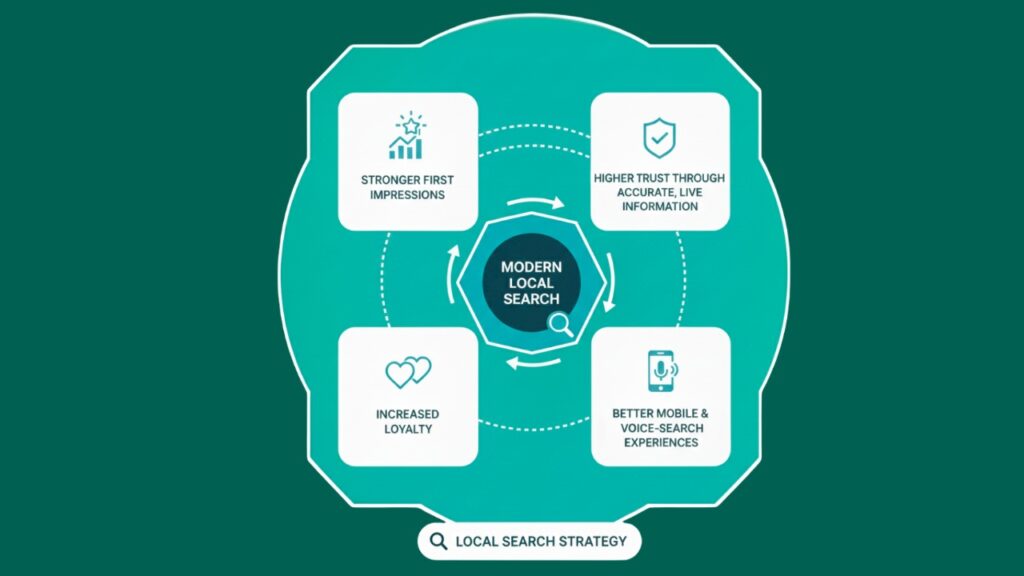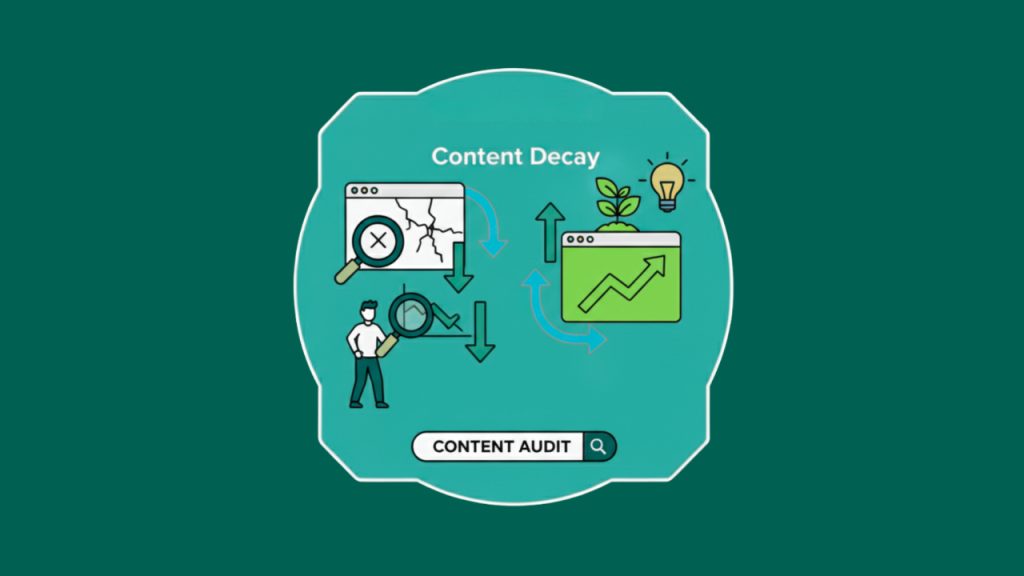Introduction: Unlock Your Website’s Full Potential
Want to improve your website’s search rankings and attract more visitors? Keeping up with SEO is key, but it’s not always easy to know what’s working and what’s not.
That’s where regular SEO checkups come in. They help you spot areas for improvement and keep your site performing at its best. But what is an SEO site audit and why is it so important?
In this guide, we’ll cover:
✅ What an SEO site audit is and the different types of audits
✅ Why regular audits are crucial for search rankings and user experience
✅ Common SEO issues that might be hurting your site
✅ Step-by-step guidance on how to perform an SEO audit
✅ How to interpret your audit results and take action
✅ How often you should conduct an SEO audit based on your website’s needs
Let’s dive in!

What is an SEO Site Audit?
An SEO site audit is a thorough analysis of your website’s performance. It looks at factors that affect your search rankings, such as site speed and keyword optimisation.
Think of it like a routine maintenance check for a car. Without regular inspections, small issues can turn into major problems that slow down performance. This is where understanding what an SEO site audit involves becomes crucial. It helps uncover weaknesses and fine-tune your strategy to improve search visibility.
An audit typically covers three key areas:
- Technical SEO – Examines site speed, mobile-friendliness, security (HTTPS), crawlability, and indexation.
- On-Page SEO – Focuses on keyword usage, content quality, meta tags, headings, and internal linking.
- Off-Page SEO – Looks at backlink quality, domain authority, and brand mentions.
Regular SEO audits help ensure your website is fully optimised for both search engines and users, keeping you ahead of the competition.
What Are the Different Types of SEO Audits?
The type of audit you carry out can vary depending on your website’s goals and challenges.
However, understanding how to perform an SEO audit ensures you choose the right approach for optimal results. This can help you prioritise improvements based on your specific SEO goals. Let’s take a look at the main types of audits you need to know:
- Technical SEO Audit – Focuses on backend issues like site speed, mobile usability, crawlability, and security.
- On-Page SEO Audit – Analyses content, keyword optimisation, meta tags, internal linking, and user engagement.
- Off-Page SEO Audit – Looks at backlinks, domain authority, and external signals affecting your rankings.
- Local SEO Audit – Ensures local listings, Google My Business, and NAP (Name, Address, Phone) information are accurate.
- Competitor SEO Audit – Compares your site’s performance with competitors to identify gaps and opportunities.

Why Does Your Website Need an SEO Site Audit?
1. Improves Search Rankings
Search engines like Google constantly update their algorithms, meaning what worked last year might not work today. An SEO audit identifies ranking issues, such as broken links, missing metadata, or slow-loading pages, so you can fix them and climb the rankings.
2. Enhances User Experience
A slow, hard-to-navigate website frustrates visitors and increases bounce rates. Learning how to perform an SEO audit helps you identify UX issues, ensuring your site is mobile-friendly, fast, and easy to use. These are key factors that search engines prioritise.
3. Boosts Website Performance
An audit uncovers performance issues that may be slowing down your website. Fixing things like large image files, unused JavaScript, and broken links helps create a smoother, more responsive site for users.
4. Identifies and Fixes Technical Errors
Technical problems, such as 404 errors, duplicate content, or improper redirects, can prevent search engines from properly crawling your site. Knowing what an SEO site audit is allows you to uncover and fix these problems before they impact your ranking
5. Keeps You Aligned with SEO Best Practices
SEO is always evolving. What worked five years ago may not be effective today. Regular audits help ensure your site remains competitive, especially in light of the frequent algorithm changes by search engines. Staying updated with the latest SEO trends will allow you to stay ahead. For some of the most current SEO trends, check out our 10 Top SEO Tips and Trends.
6. Increases Website Traffic & Conversions
More traffic is great, but only if it’s the right traffic. An audit helps optimise your content and SEO strategy to attract visitors who are interested in what you offer. When you know what an SEO site audit is and how to use it effectively, you can drive more relevant traffic, boost engagement, and increase conversions.
What Issues Can These Reviews Uncover?
An audit often reveals hidden problems that may be damaging your rankings. So, what is an SEO site audit if not a way to uncover these critical issues? Some of the most common problems include:
- Slow Page Speed – Large images, unoptimised code, or excessive redirects can slow down your site.
- Broken Links & 404 Errors – Too many broken pages can negatively impact user experience and search rankings. Knowing how to perform an SEO audit helps you fix these issues before they affect performance.
- Poor Mobile Usability – If your website isn’t mobile-friendly, Google may rank it lower in search results.
- Duplicate Content – If your site has identical or very similar content across multiple pages, search engines may struggle to rank them properly.
- Lack of Internal Linking – Poor site structure can make it harder for search engines to index your pages.
- Toxic Backlinks – Low-quality or spammy links pointing to your site can reduce your domain authority. Find out how to earn the right kinds of links with our winning tactics for building backlinks blog.

How to Perform an SEO Audit
Ready to audit your website? Follow these steps to uncover issues and improve your site’s performance::
Use SEO Tools – Platforms like Google Search Console, Ahrefs, and SEMrush make the process easier by highlighting technical issues, keyword gaps, and backlink quality. These insights help you understand what’s working and what needs fixing.
Check Technical SEO – Think of this as checking your website’s foundation. Use tools like Google PageSpeed Insights to assess site speed, mobile usability, security (HTTPS), and crawl errors. A slow or glitchy site can frustrate visitors and hurt your rankings. Addressing these technical factors is a key step in performing an SEO audit, ensuring your site runs smoothly.
Analyse On-Page SEO – Your content needs to be well-structured and optimised. Check keyword usage, meta tags, and internal linking to ensure your pages are easy to navigate for both users and search engines. The better your content is organised, the more likely it is to rank well. To explore keyword strategies in more depth, take a look at our article on Long Tail vs Short Tail Keywords.
Review Backlinks – Not all links are good links. Audit your backlink profile to remove spammy or harmful links and focus on earning high-quality links from authoritative sites. Strong backlinks can significantly boost your domain’s credibility.
Fix Errors & Monitor Progress – Once you’ve addressed any issues, keep an eye on your site’s rankings, traffic, and performance metrics. SEO isn’t a one-and-done task. Regular audits ensure your website stays optimised and ahead of algorithm updates.
By following these steps, you’ll not only improve your website’s visibility but also create a better experience for your audience.
How Frequently Should You Audit Your Website’s SEO?
The frequency of SEO audits depends on your website’s size, industry, and growth strategy. Regular audits help catch technical issues early, keep your site optimised, and adapt to algorithm changes.
Conducting audits at the right intervals also helps keep your site visible, user-friendly, and ahead of the competition.
- Small Business Websites (Every 6–12 months): If your site isn’t frequently updated, a biannual or annual audit is usually enough to maintain strong search rankings. Plus, understanding what an SEO site audit is ensures your website stays aligned with best practices.
- E-commerce & Content-Heavy Sites (Every 3–6 months): Frequent audits help track keyword performance, fix broken links, and optimise new content.
- Competitive & High-Traffic Sites (Every 1–3 months): If your site has high traffic or operates in a competitive industry, quarterly (or even monthly) audits can prevent ranking drops and spot SEO issues before they escalate.

How to Interpret Your SEO Audit Results
Completing an SEO site audit is just the first step. Now it’s time to understand what your results mean and take action.
By using your audit results effectively, you can fine-tune your SEO strategy and keep your website performing at its best!
Here’s how to break it down:
- Tackle the Biggest Issues First – Start with major technical problems like slow site speed, broken links, or indexing errors. Fixing these will have the biggest impact on your rankings.
- Think About User Experience – If your audit flags issues like poor mobile usability or confusing navigation, improving these areas can help visitors stay on your site longer.
- Strengthen Your Content – If you find weak or poorly optimised content, update it with relevant keywords, improve readability, and ensure it provides real value to users.
- Check Your Backlinks – Harmful or spammy backlinks can hurt your rankings. Use your audit findings to remove bad links and focus on gaining high-quality ones.
- Keep an Eye on Progress – SEO isn’t a one-time fix. By learning what an SEO site audit is, you can stay on top of your site’s health and performance over time. Track your rankings, site traffic, and engagement regularly. This helps you see what’s working and where further tweaks might be needed.
What Are the Must-Have Tools for Website Audits?
Choosing the right SEO tools can make all the difference in identifying and fixing website issues. Here are some of the key platforms we rely on:
Google Search Console: GSC helps track your website’s performance in Google search and detect technical issues. Key features include:
- Coverage Report – Identifies indexing errors and crawl issues.
- Performance Report – Tracks keyword rankings, impressions, and click-through rates.
SEMrush: Provides an in-depth analysis of your website’s SEO performance and competitor strategies. Key features include:
- Site Audit – Detects technical issues like broken links, slow-loading pages, and duplicate content.
- Keyword Analytics – Identifies ranking opportunities and keyword gaps.

Conclusion: Ready to Take Your SEO to the Next Level?
Regular SEO audits are crucial for keeping your website optimised, competitive, and aligned with search engine best practices. A well-executed audit helps you identify technical issues, improve user experience, and refine your SEO strategy to drive more traffic and conversions.
If it’s been a while since your last audit, now is the perfect time to reassess your website’s health.Not sure where to start? Explore our SEO services at Midland Marketing and let our team help you optimise your site for success!
Key Takeaways:
- SEO audits boost rankings – Addressing site errors and optimising content improves visibility in search results.
- User experience matters – Faster load times, mobile-friendly design, and clear navigation boost engagement.
- Staying updated is key – Search algorithms evolve, so regular audits help you adapt and maintain strong performance.
- Fixing technical issues is essential – Broken links, slow pages, and indexing errors can negatively impact your site.
Want some more?
Latest Insights & News

How Modern Local Search Transforms the Customer Experience
The New Role of Local Search in Customer Experience Local search didn’t make a grand entrance. It settled into the middle of our online lives

AI Search Optimisation for E-commerce: 7 Proven Steps to Boost Visibility and Sales
How AI is Changing the E-commerce SEO Game AI search optimization for e-commerce is no longer an idea. It is practice. Search engines now use

Understanding Content Decay: How to Spot and Revive Underperforming Pages
What Is Content Decay and Why Does It Matter for SEO Content decay is the gradual decline in organic traffic and rankings. This happens to












